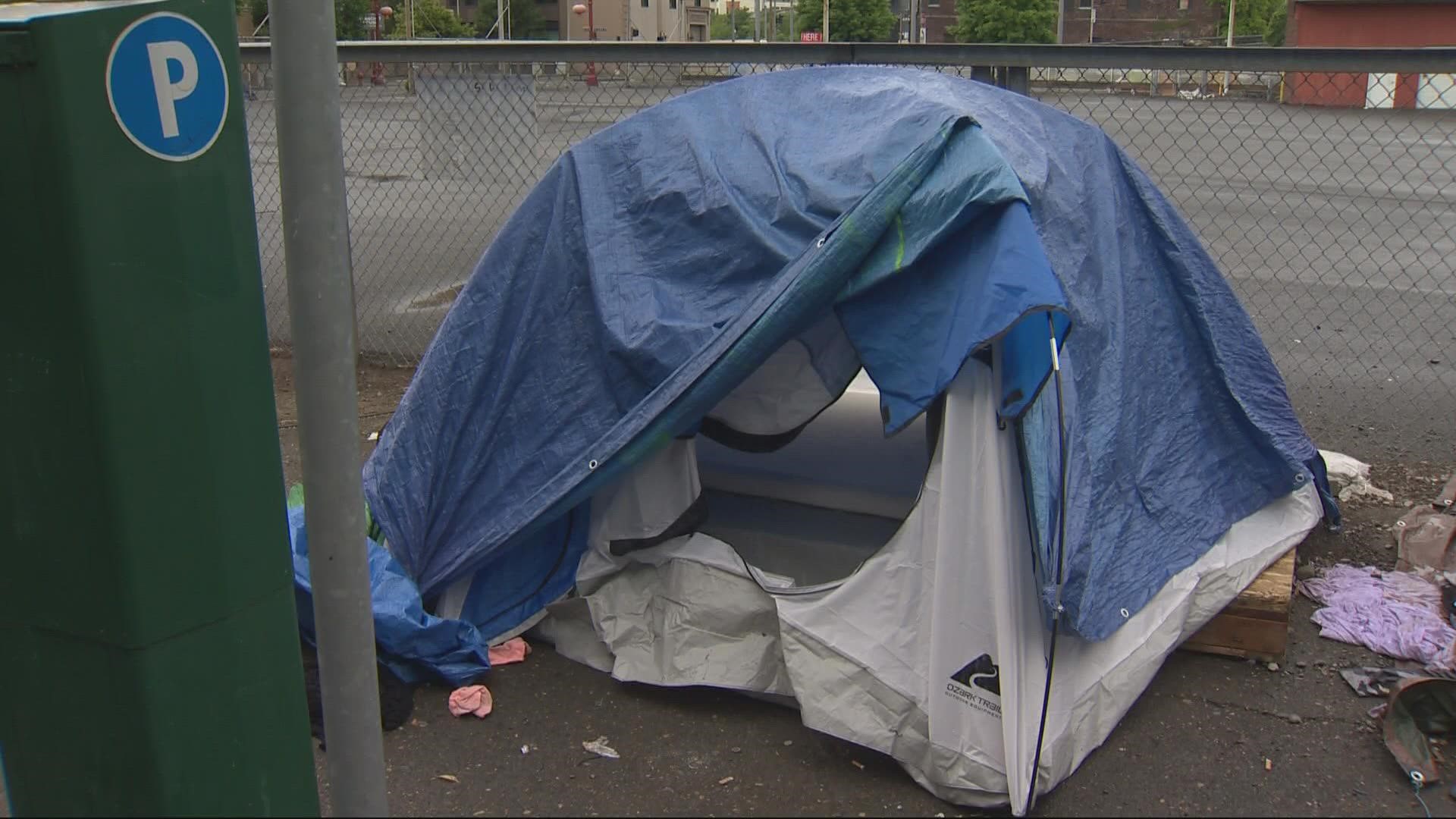PORTLAND, Oregon — This week, the Portland City Council approved $27 million in spending in order to help build six designated campsites as part of the mayor's plan to tackle homelessness.
Some $8 million of that funding comes from pillaging the city's contributions to the Joint Office of Homeless Services, an agency helmed by Multnomah County but operated as a mutual venture.
Mayor Ted Wheeler's office put out a press release about the new budget — and in the statement called on Multnomah County to contribute more for the camps, claiming the county has $33 million in "over-collected" and unspent money.
The tax resources the press release referred to were generated in 2021, the first year of Metro's Supportive Housing Services Tax, which is earmarked for projects to help end homelessness in Washington, Clackamas and Multnomah counties. Metro voters approved the tax in May of 2020.
The voters approved the measure as a 1% tax on incomes above $125,000 for individuals and $200,000 for couples, and a 1% tax on net income for large businesses.
Metro spokesperson Nick Christensen said that when the measure was referred to voters, Metro projected it would raise $250 million a year.
“We made the initial projections for this measure in February of 2020. Three weeks later our world changed and we didn't know when it was going to recover what the world would look like,” said Christensen.
The COVID-19 pandemic hurt a lot of things, including the economy.
So Metro adjusted expectations for the 1% tax. In October of 2020, they estimated that the tax would raise $130 million its first year — that's what counties based their budgets on as they came up with plans for Metro tax spending.
By May of 2021, the estimate had gone up to $180 million.
It wasn't until April of 2022, after most people had paid their taxes, that Metro found out it had collected more than $235 million — about $55 million more than anticipated in its latest forecast.
This is what the mayor's press release referenced, calling on Multnomah County to put up $21 million to the sanctioned camp cause, saying that “the County has over $33 million in both over-collected and underspent resources through both the Joint Office of Homeless Services and the region’s Supportive Housing Services funding provided to the County."
Essentially, Wheeler said that the county has more money on hand than it budgeted for, so it should put the money toward the initiative he introduced in October and got adopted in November.
But county officials pushed back against his characterization, pointing out that nobody required to pay the Metro tax paid more than the 1% tax voters approved. And they don't characterize funds collected in excess of the forecast as particularly liquid.
“It really is not fair to call it an overtax. What it really is is a sign of a healthy economy and a sign that our recovery out of COVID is doing better, at least for the high-income earners and large businesses that are paying this tax around the region,” said Christensen. “These tax dollars are going to work right now all over the metro area from Forest Grove to Troutdale, from Wilsonville to Portland. People who need help are getting help, and bit by bit we're trying to address this crisis on our streets."
Christensen said the money that's been raised allows counties to put some in reserve for leaner years and has already helped get 1,600 homeless people off the streets, and eviction protection services for 9,000 people in danger of losing housing.

